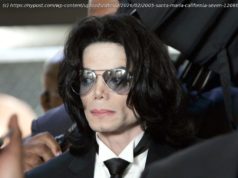The ‘Once a Blue, always a Blue’ T-shirt turned out not to be just a statement but a prophecy.
The ‘Once a Blue, always a Blue’ T-shirt turned out not to be just a statement but a prophecy.
When Wayne Rooney hoisted up his Everton kit to reveal the message underneath, having scored in an FA Youth Cup tie against Aston Villa, it was viewed as a moment of teenage bravado.
No one realistically expected the academy graduate with such prodigious talent to have a long-term future at the club and when Manchester United and their millions came calling there was only ever going to be one outcome.
The T-shirt that Evertonians had so enjoyed became a stick to beat Rooney with and the love which he had once felt turned to anger and derision.
They are sentiments that even after 13 years will not dissipate easily as the return of the prodigal son — armed with England and Manchester United’s all-time goalscoring records — has not been greeted with the resounding fanfare expected for such a homecoming.
A critical element of the fanbase argue that signing a player who turns 32 in October is a retrograde step as manager Ronald Koeman has spent the early part of the summer injecting his squad with younger, fresher blood to liven up an ageing squad.
The romantics, whose dreams started to grow two summers ago when Rooney briefly donned an Everton shirt again for Duncan Ferguson’s testimonial at Goodison Park, see it as one last hurrah, the final piece in the jigsaw of cracking the top four.
What is clear is that Rooney — with a reported salary which is double that of any other player on the books — will not survive on sentimentality and he will have to deliver to a demanding audience.
Unwanted at United and with his international career on the wane (no pun intended) the striker can at least concentrate his efforts on boosting his boyhood club, using his vast experience to bring the best out of Koeman’s young charges.
He returns, however, as a man expected to lead and inspire. Similar, but at the time unrealistic, expectations were placed on the 16-year-old shortly after he announced himself to the world in October 2002 with a superb late strike to help beat Arsenal 2-1.
Those continued following his £30million move to Old Trafford just two years later when Rooney marked his debut with a Champions League hat-trick against Fenerbahce.
He went on to back that up with 250 more goals in 559 United appearances, winning five Premier League titles, one FA Cup, three League Cups, the Europa League and the 2007-08 Champions League.
Trophies were harder to come by at international level but goals were not as he passed Sir Bobby Charlton’s record on his way to 53 in 119 caps.
But his time at Old Trafford was not all plain sailing with a 2010 contract dispute, during which the unpalatable spectre of a move to Manchester City was threatened, may also have done lasting damage to his reputation among the club’s fans.
Earlier this year Rooney felt it necessary to publicly express his commitment to the club amid speculation he would be tempted by the riches of the Chinese Super League as he spent more and more time on the sidelines.
He opted against a move to the Far East and instead has taken a considerably shorter trip west to a place he once called home.






